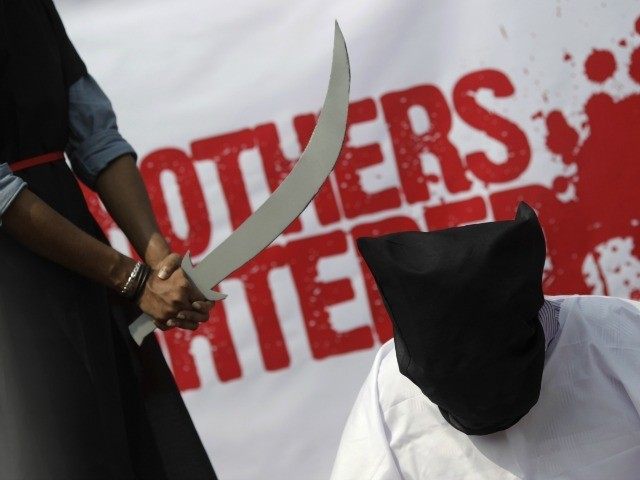The Sunni kingdom of Saudi Arabia, a member of the United Nations Human Rights Council, is expected to decapitate a disabled 23-year-old man who was sentenced to death for participating in anti-government protests in the predominantly Shiite eastern part of the country.
Munir al-Adam is awaiting his execution after being sentenced for “attacks on police,” among other crimes, which prosecutors claim he partook in during a series of protests in 2011, reports the Independent.
Adam, who is appealing his sentence, was reportedly arrested in February 2012 when he was 18 years old and accused of taking part in protests in his Shiite-majority hometown of Qatif the previous year.
“There are regular protests in the [Qatif] area against the Saudi government,” notes the Independent.
“The 23-year-old is partially blind and was already partially deaf at the time of arrest; he alleges he is now completely deaf in one ear as a result of being severely beaten by police,” it adds.
In a statement, his family rejects the verdict and claims Adam was tortured into confessing to the alleged crimes, reports the Times.
The Independent cites Adam as indicating that “he had only signed a document admitting the offenses after being repeatedly beaten.”
Adam reportedly noted that the had been accused of “sending texts” when he was too poor to own a cell phone.
“Munir Adam’s appalling case illustrates how the Saudi authorities are all too happy to subject the most vulnerable people to the swordsman’s blade,” declared Maya Foa, of human rights organization Reprieve. “Saudi Arabia’s close allies, including the UK, must urge the kingdom to release Munir, along with juveniles and others who were sentenced to death for protesting.”
As of mid-October, Saudi Arabia had executed 134 people this year, most of them by public beheading, according to a tally by Agence France-Presse (AFP) and Human Rights Watch.
“Most people executed in Saudi Arabia are convicted for murder and drug trafficking, although nearly 50 people convicted of terrorism offences were put to death on a single day in January, among them the prominent [Shiite] cleric Sheikh Nimr al-Nimr,” noted the BBC.
The Saudi kingdom had reportedly been on track to exceed its 2015 execution total.
The Independent adds:
Saudi Arabia is one of the world’s most prolific executioners. Research last year by human rights organization Reprieve found that, of those identified as facing execution in Saudi Arabia, some 72 per cent were sentenced to death for non-violent alleged crimes, while torture and forced confessions were common.
The traditionally close relationship between Saudi Arabia and Britain has become strained in the past year as people in the West have protested against the use of the death penalty, including against minors. Protests also erupted across the Middle East in January.
Saudi Arabia is also a U.S. ally.
Sara Hashah, a spokesperson for Amnesty International’s Middle East and North Africa branch, has revealed that Saudi Arabia, Pakistan, and Iran are responsible for 90 percent of all the executions across the world.
“In Saudi Arabia, where people are routinely sentenced to death after grossly unfair trials, we have seen a dramatic surge in the number of executions in the past two years which has shown no sign of abating in 2016,” she told the Independent in July.
“This clearly demonstrates that Saudi Arabia’s authorities are increasingly out of step with a global trend of states moving away from the death penalty,” also said Hashah, adding, “Saudi Arabia’s authorities must end their reliance on this cruel, inhuman and degrading form of punishment immediately.”

COMMENTS
Please let us know if you're having issues with commenting.